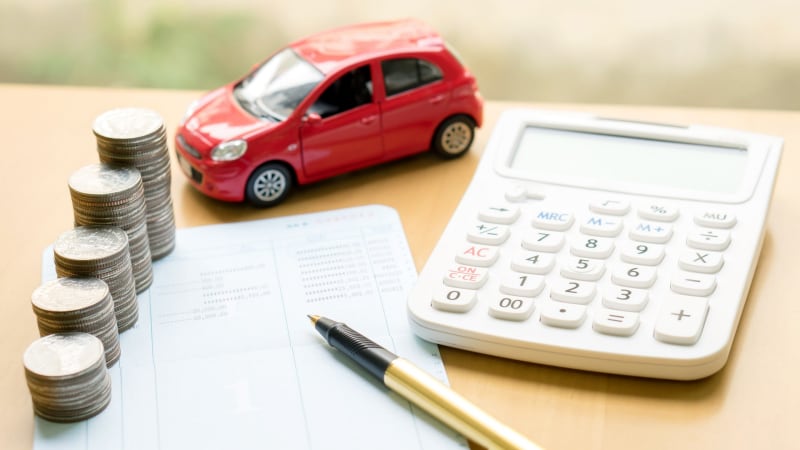Lease vs. finance: Is it better to buy or lease a car?

To lease or to finance: one of the most important questions to ask yourself when looking at car options. Like many things, there isn’t a definitive answer, but there are factors you may want to consider when weighing both options. In this article, we’ll break down some of the differences between leasing and financing, along with some pros and cons for each and how you can make the best decision for you.
The differences between leasing and financing
The main difference between leasing vs. financing is the end goal. When you lease a car, you are borrowing it for a certain amount of time and making monthly payments for use of the car throughout the lease term. Once the term is over, you return the car or opt to buy it (if buying is permitted under the lease contract).
When you finance a car, you take out a loan or installment financing and make monthly payments to a lender to pay off the financing. Once all payments are made, you own the vehicle and can choose to keep it for however long you please.
Monthly payments for auto purchase financing are based on several factors, heavily influenced by your credit history and how much you’ve borrowed. Each month you make a payment, which goes toward your principal and interest.
On a lease, monthly payments go to the lessor and are determined by several factors including, but not limited to:
- Credit
- Length of lease
- Expected mileage
- Value of vehicle
- Rent charge
- Taxes/fees
You may be able to negotiate the value of the vehicle, expected mileage, or other aspects of the lease with your dealership before signing on for the lease. If your lease contract allows you to purchase the vehicle at the end of the lease term, you will pay the amount disclosed in the lease contract to exercise the purchase option.
Leasing and financing both provide you with a vehicle, contingent on timely monthly payments, but the payments yield different results. One is like renting an apartment while the other is like buying a house.
The pros and cons of buying a car
There are several potential pros to buying a car, including that the car is yours to keep. If you have a far commute to work or take frequent road trips, your mileage adds up. This lifestyle could often be conducive to owning a car since you don’t have to worry about extra mileage fees at the end of a lease. We discuss these fees further below.
Once your financing is paid off, you no longer have a monthly car payment to include in your budget. You do, however, have to consider any regular maintenance costs that the car may need over time.
Another pro could include that you don’t have to worry about paying mileage fees. When you finance a car, you can drive as many miles as you want without having to worry about paying a fee for going over the set mileage, unlike a lease where you usually will be liable for charges for going over a set amount of miles. There are also no damage fees that are typically incurred with a lease.
Owning a vehicle may look like the right option for you to consider, but there are some other factors to keep in mind.
Financing a vehicle may be more expensive than leasing. Car prices today are relatively high, especially for luxury brands. You may have to make a sizeable down payment before your monthly payments begin. Once you’ve paid off your financing, the costs don’t stop there — over time you could end up having to pay for maintenance, inspections and other costs that may have been covered in a lease agreement.
The pros and cons of leasing a car
You’ve considered buying your car, but now you’re wondering if leasing is the way to go. Well, let’s see! If you aren’t too worried about mileage, you’re interested in upgrading every couple of years or you’re enticed by the idea of potentially lower monthly payments then you’ve come to the right place. Even though you don’t own the car at the end of your lease unless you purchase it, your money is still going towards something you made plenty use of.
Leases typically come with lower monthly payments (compared to if you financed the same make and model). The down payment needed is usually lower than if you financed as well.
Leases could also be ideal for car buffs who enjoy new makes and models – when your lease is up, you can simply return the vehicle and look for a new one.
When it comes to looking at the cons of a lease, keep in mind that if you’re someone on the road, traveling long distances, a lease usually comes with mileage restrictions that carry a fee should you go over that limit. There are also early termination fees should you want to terminate the lease ahead of its scheduled date, as well as fees for any damage incurred.
How to decide between buying or leasing a car
When it comes to looking at the differences between leasing vs buying/purchasing, assessing what makes sense from both a short-term and long-term financial perspective can be key. If you don’t mind having a monthly car payment, enjoy trying out different models and appreciate the lack of long-term maintenance and resale, then leasing may be for you. If you’re someone who knows they’ll be driving long distances, want to work toward a time without monthly payments and are prepared to nurture a car long-term then financing options could be the way to go.



